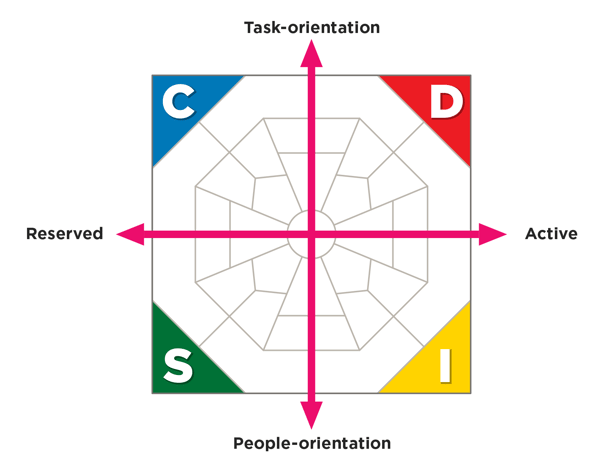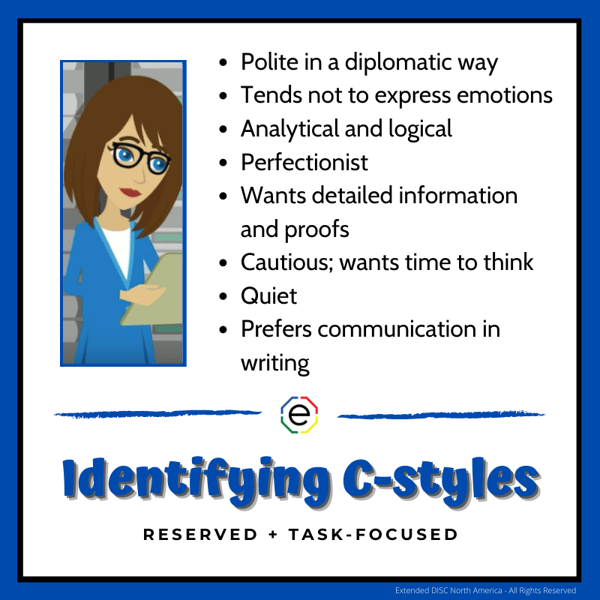What makes C-styles unique from the other styles?
4 DISC Styles
 DISC is a non-judgmental tool that identifies 4 behavioral styles. There is no good or bad, better or worse style; they are only different.
DISC is a non-judgmental tool that identifies 4 behavioral styles. There is no good or bad, better or worse style; they are only different.
The Extended DISC® Questionnaire, based on your responses, identifies your DISC style. It helps to identify your preferred and most comfortable ways of doing things. DISC only predicts how natural some behaviors are for you and how other behaviors tend to take more energy. It's not about your ability and it does not predict your success in any given role.
In fact, the most successful people own who they are. They know their strengths and are cognizant of their development areas. More importantly, they know when to rely on their strengths and when they should be modifying their style.
Now, let's highlight C-styles.
Identifying C-styles

C-styles are task-oriented like the D-style, but more reserved. They want time to prepare and analyze tasks and things. Quality driven C-styles strive to be correct. They may get frustrated by unpredictability and their biggest fear is to make a mistake.
They tend to be more polite in a diplomatic way; preferring to avoid conflicts. We describe C-styles as quiet, systematic, careful, and formal. They tend not to show their emotions and energies on the surface. C-styles like things to be in order. They are the masters of details; so much so, they sometimes lose the big picture.
Communication Style

C-styles tend not to be talkers unless sharing their expertise. They are less comfortable with personal chats, especially when having to give opinions or discuss abstract matters. Expressing disagreeing views and focusing on emotions can be more difficult for them.
C-styles prefer written communication because it allows them to proceed logically and provides time to analyze facts and details. Furthermore, they have the time to provide a well thought out response. Under pressure, they may appear nit-picky and overly critical; looking for mistakes and checking to ensure perfection.
Preferred environment
C-styles prefer a structured and organized environment where there are minimal surprises and unpredictabilities. They are more comfortable with rules and systems in place to follow.

